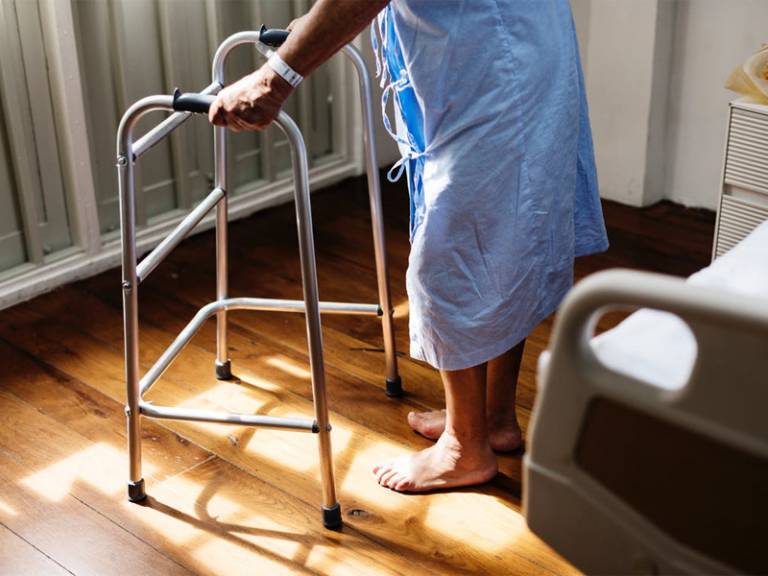Dementia patients "suffering in silence"
30 August 2018
People with dementia in hospitals who experience pain are more likely to experience delirium as well, often without being able to communicate the pain they are in, finds a new UCL-led study.

The study, published in Age and Ageing, found that many people with dementia in hospitals are experiencing pain, with over a third of dementia patients with delirium being unable to communicate how they are feeling.
"In the UK, almost half of people admitted to hospital over the age of 70 will have dementia. We know that they are a high-risk group for delirium and yet delirium is often under treated," said senior author Dr Liz Sampson (Marie Curie Palliative Care Research Department, UCL Psychiatry).
"It's deeply troubling to think that this vulnerable group of patients are suffering in silence, unable to tell healthcare professionals that they are in pain," she said.
This is the first study of this kind in a hospital setting, and suggests that pain may be a key contributing factor for delirium in people with dementia.
Delirium is a state of acute confusion. It is a common and potentially serious medical condition that can particularly affect frail older people. It can be caused by infections, sensory deprivation or even simply a move to an unfamiliar environment such as a hospital. Patients may be scared and very distressed, and this can be deeply traumatic for the patient and an upsetting experience for their family.
Around 40% of people in acute hospital wards have dementia - many of whom are potentially living in pain yet are unable to ask for help.
The study, jointly funded by Alzheimer's Society and Bupa Foundation, and supported by the terminal illness charity Marie Curie, was conducted in two acute hospitals in the UK and followed 230 patients over 70 years old.
Researchers first asked patients if they were in pain. If the patient was then unable to communicate, researchers assessed people for signs of pain in their facial expression and body language. They recorded the number of people who were unable to communicate that they were in pain, and measured delirium with a standard confusion assessment method.
The researchers found that 49% of the participants experienced pain at rest, while 25% experienced pain during activity. Of the 35% of participants who were delirious and unable to self-report pain, 33% of these participants experienced pain at rest, and 56% experienced pain during activity.
The odds of being delirious were 3.26 times higher in participants experiencing pain at rest.
The study concludes that if hospital staff can identify patients who are experiencing delirium this could indicate that the person might be in pain, and regular assessments could help effectively manage their pain and delirium.
"Studies like this may help hospital staff provide better care now and in the future as dementia diagnosis rates continue to rise," added Dr Sampson.
The study's first author, Dr Alexandra Feast (Marie Curie Palliative Care Research Department, UCL Psychiatry) said: "In order to support people with dementia who are unable to verbalise their pain, it is vital that regular pain and delirium assessments are conducted to identify this vulnerable group of patients, not only to manage their pain but also to minimise the potential risk of delirium and the associated adverse health outcomes."
Dr Doug Brown, Chief Policy and Research Officer at Alzheimer's Society, commented: "Dementia is a devastating condition, with someone in the UK developing it every three minutes. We know that people living with dementia can find it difficult to communicate, and when this concerns inability to communicate pain to hospital staff, it's clearly extremely concerning, as it's not only upsetting and frustrating but can have serious consequences on a person's health. The link this research shows between delirium and pain shows that the problem may be worse than previously realised."
Links
- Research paper in Age and Ageing
- Dr Liz Sampson's academic profile
- Dr Alexandra Heard's academic profile
- Marie Curie Palliative Care Research Department at UCL
- UCL Psychiatry
Image
- Source: Pexels
Source
Media contact
Chris Lane
Tel: +44 (0)20 7679 9222
Email: chris.lane [at] ucl.ac.uk
 Close
Close

